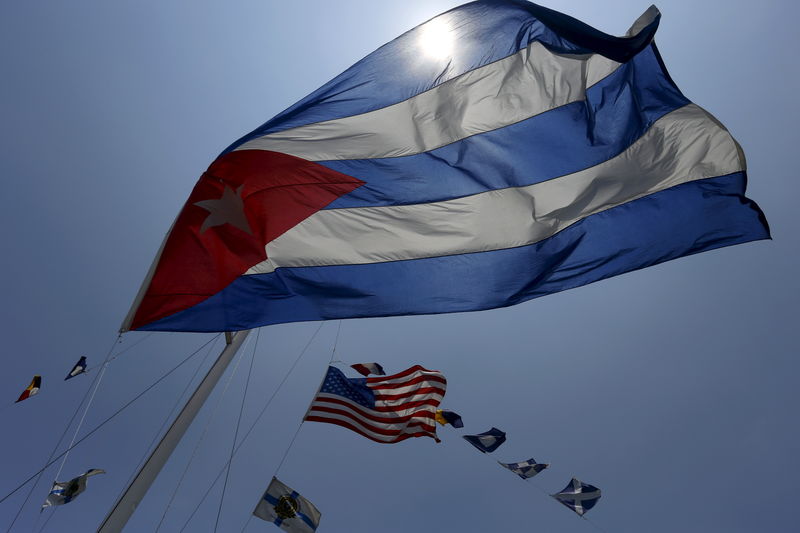By Patricia Zengerle and Matt Spetalnick
WASHINGTON (Reuters) - The Trump administration will order nearly two-thirds of Cuba's diplomatic personnel to leave the United States after months of mysterious "attacks" that have damaged the health of American embassy staff in Havana, according to a congressional source and a person familiar with the plan.
The U.S. State Department is expected to announce the expulsion on Tuesday, the sources said on Monday.
The decision follows an announcement on Friday that the United States was cutting its diplomatic presence in Cuba by more than half as it warned U.S. citizens not to visit because of unexplained incidents that have caused hearing loss, dizziness and fatigue in U.S. embassy personnel.
The latest plan was first reported by the Miami Herald, which cited a source as saying the expulsion of Cuban personnel was in "reciprocity" for the U.S. drawdown from Havana.
The steps being taken by President Donald Trump’s administration mark a further blow to his predecessor Barack Obama’s policy of rapprochement between Washington and Havana, former Cold War foes.
The State Department declined to comment on an expulsion plan, except to say that Secretary of State Rex Tillerson “continues to evaluate steps that the Department can take to ensure the Cuban government is accountable to its responsibility to protect diplomats.”
Several Cuban-American Republican lawmakers, including U.S Senator Marco Rubio and Representative Ileana Ros-Lehtinen, had urged that Cuban diplomats be expelled in retaliation for the Cuban government’s failure to get to the bottom of the attacks.
Trump administration officials planned to brief lawmakers on their Cuba policy on Tuesday, another congressional aide said, speaking on condition of anonymity.
AT LEAST 21 U.S. EMBASSY STAFFERS AFFECTED
The State Department announced on Friday that in addition to drawing down staff in Havana to essential personnel, the embassy was halting regular visa operations for Cubans seeking to visit the United States and would offer only emergency services to U.S. citizens.
At least 21 U.S. embassy employees in Cuba have been injured and reported symptoms such as hearing loss, dizziness, headache, fatigue, cognitive issues, and difficulty sleeping, the State Department said on Friday.
Cuba's Foreign Ministry Chief for U.S. Affairs Josefina Vidal said last week that the U.S. decision to reduce staff at its Havana embassy was hasty and will affect bilateral relations,
Cuba, the United States and Canada have investigated the attacks, but the probe has not yielded any answers about how they were carried out or who was responsible for them.
Cuba has denied involvement in the attacks. The State Department has not directly blamed Havana for them but asked two Cuban diplomats to leave Washington in May.
The U.S. measures will stop short of breaking off relations or closing the two countries’embassies, which reopened in 2015 following more than five decades of hostility.
But the bizarre case has brought simmering U.S.-Cuba tensions since Trump took office to a boil.
Trump, who in June vowed to partially roll back the detente with Cuba agreed by his Democratic predecessor Obama, called the Cuban government "corrupt and destabilizing" in his address to the United Nations General Assembly last month.
He said he would not lift the U.S. trade embargo on the Caribbean island until it made "fundamental reforms." Cuba described his comments as "unacceptable and meddling."
